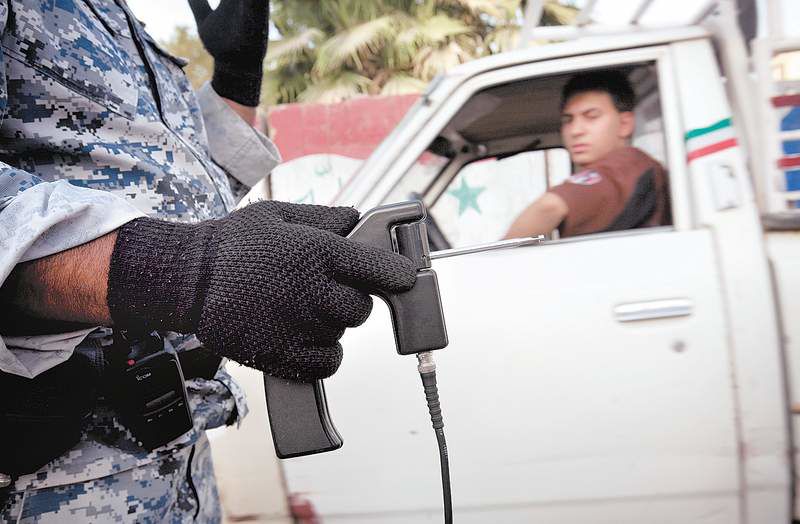Iraqis’ bomb detectors seen as all but useless
Published 4:00 am Wednesday, November 4, 2009

- An officer at a police checkpoint in Baghdad holds a bomb and weapon detection device that U.S. military and technical experts say is about as accurate “as a Ouija board,” despite being used at hundreds of checkpoints.
BAGHDAD — Iraq’s security forces have been relying on a device to detect bombs and weapons that the U.S. military and technical experts say is virtually useless.
The small hand-held wand, with a telescopic antenna on a swivel, is being used at hundreds of checkpoints in Iraq. But the device works “on the same principle as a Ouija board” — the power of suggestion — said a retired U.S. Air Force officer, Lt. Col. Hal Bidlack, who describes the wand as nothing more than an explosives divining rod.
Still, the Iraqi government has purchased more than 1,500 of the devices, known as the ADE 651, at costs from $16,500 to $60,000 each. Nearly every police checkpoint, and many Iraqi military checkpoints, have one of the devices, which are now normally used in place of physical inspections of vehicles.
The U.S. military does not use the devices. “I don’t believe there’s a magic wand that can detect explosives,” said Maj. Gen. Richard Rowe, who oversees Iraqi police training for the U.S. military. “If there was, we would all be using it. I have no confidence that these work.”
But the Iraqis believe passionately in them.
Dale Murray, head of the National Explosive Engineering Sciences Security Center at Sandia Labs, which does testing for the Pentagon, said the center had “tested several devices in this category, and none have ever performed better than random chance.”
Normal remote explosives detection machinery, often employed in airports, weighs tons and costs hundreds of thousands of dollars.
Aqeel al-Turaihi, the inspector-general for the Ministry of Interior, reported that the ministry bought 800 of the devices from a company called ATSC (UK) Ltd. for $32 million in 2008, and an unspecified larger quantity for $53 million.
Turaihi said Iraqi officials paid up to $60,000 apiece, when the wands could be purchased for as little as $18,500. He said he had begun an investigation into the no-bid contracts with ATSC.
Proponents of the wand often argue that errors stem from the human operator, who they say must be rested, with a steady pulse and body temperature, before using the device.
Returnees to Iraq lack jobs, resources
The International Organization for Migration says nearly 350,000 Iraqis have returned to their homes but are suffering from widespread unemployment and lack of resources. The group says that of the returnees — a small percentage of Iraqis uprooted since the 2003 U.S. invasion — half lack health care, and a third of the families have no wage earners.
— The Associated Press






